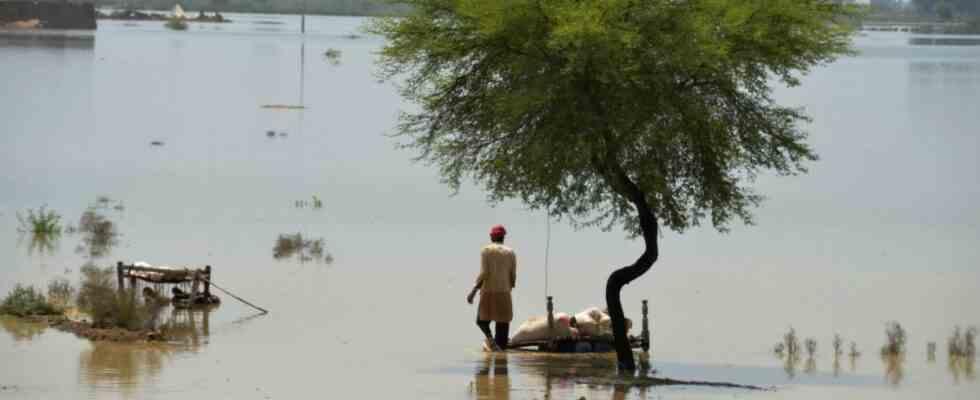More than 30,000 guests from around 200 countries are expected in Sharm el-Sheikh from Sunday. Because then the 27th United Nations Climate Change Conference, or “Cop27” for short, will start in the Egyptian seaside resort. However, one will not be among the 30,000: “Fridays for Future” founder Greta Thunberg. For the past few years, she’s always traveled to see the cops, no matter how inconvenient it was for her since she doesn’t travel by air. But at the launch of her new book in London, she announcednot to participate in Egypt. And not because she doesn’t feel like going on another long trip on a sailing boat. But because, in her opinion, the conference is merely a “forum for greenwashing”. Instead of system changes, it’s always just about “gradual progress”.
The cop only makes sense, says Thunberg, if you can use it as an “opportunity to mobilize.” And that is rather difficult this year. In Egypt, under the authoritarian rule of President Abdel Fattah al-Sisi, there is little room for an active civil society. Demonstrations are all but forbidden and will only be allowed to a very limited extent during the cop. Already in advance climate activists were arrested.
However, not only Greta Thunberg does not expect any great successes from the cop. Overall, the mood is rather pessimistic. The world has changed since the last climate conference, which took place in Glasgow in 2021 and was at least partially celebrated as a success by participants and external observers alike. At that time, for example, 190 countries committed to gradually phasing out coal combustion – without realizing that a year later a global energy crisis would force many to rely more on fossil fuels again. “The momentum from Glasgow has fizzled out,” says Niklas Höhne, founder of the New Climate Institute. in conversation with my colleague Thomas Hummel summarized.
In the simultaneity of crises, the world seems to have just run out of breath in the fight against global warming (although it has always had very little breath for it). According to a recent report by the United Nations Environment Program, we are currently on a course towards 2.4 to 2.6 degrees Celsius warming by the year 2100 – and even then only if all international climate protection commitments are met.
Maybe that’s why two of the biggest topics planned for the upcoming conference have nothing to do with emission limitation or system change. A lot should be about adapting to the consequences of global warming – and about damage limitation. Or rather: for damages. The participants will debate “loss and damage”. This means the idea of compensatory payments from large industrialized nations, which are mainly responsible for the climate crisis, to poorer countries in the Global South, which have to struggle most with its consequences. So far, most rich countries have blocked these demands. The negotiations on this topic will be chaired by Jennifer Morgan, Special Representative for International Climate Policy at the Federal Foreign Office. A job I don’t envy.
Maybe money will flow in the end. But we will certainly continue to use gas, oil and electricity generated from coal. Only a small glimmer of hope for the climate remains in this energy crisis, and maybe it will also be seen in the Cop: that many countries are now realizing how much more reliable and independent renewables are compared to fossil energies.
(This text is from the weekly Newsletter climate friday you here for free can order.)

